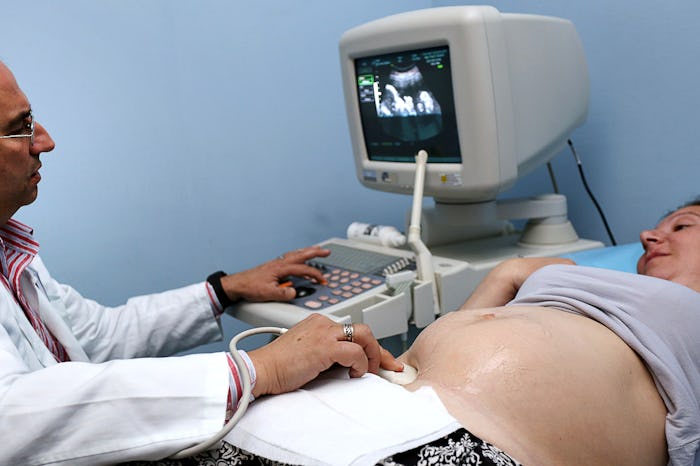News

Here's When Babies Can Feel Pain, Despite What The 20-Week Abortion Ban Says
On Tuesday, the U.S. House of Representatives will vote on legislation that would effectively criminalize abortions after 20 weeks of pregnancy — with exceptions for rape, incest, and if the mother's life is at risk. This controversial bill is called the Pain-Capable Unborn Child Protection Act — but its name is actually misleading and begs the question: When can babies feel pain? The 20-week abortion ban isn't supported by science, as it turns out.
If you remember, similar legislation failed in both 2013 and in 2015. But this time could be different because there is support from the White House. Back in 2016 before President Trump even won the election, he said he would sign the Pain-Capable Unborn Child Protection Act into law if he were elected. And on Monday, an administration policy issued by the White House stated: "The administration strongly supports H.R. 36, the Pain-Capable Unborn Child Protection Act, and applauds the House of Representatives for continuing its efforts to secure critical pro-life protections."
Still, groups like Planned Parenthood are standing up for a woman's constitutional right to choose.
"This dangerous, out-of-touch legislation is nothing more than yet another attempt to restrict women’s access to safe, legal abortion," the Planned Parenthood Action Fund said on its website. "20-week bans are unconstitutional. 20-week bans are a clear attempt to erode Roe v. Wade. In fact, 20-week ban proponents are outspoken about their goal to challenge the 1973 Supreme Court decision protecting a woman’s right to safe and legal abortion."
If proponents of this legislation are using the term "fetal pain" in the title of their anti-abortion bills, they should probably do a little homework on the topic. Because many doctors have rejected this claim, according to The New York Times, based on research published in the Journal of the American Medical Association in 2005. This study found that a fetus is unlikely to feel pain until roughly 27 weeks, which is during the third trimester of pregnancy. Furthermore, according to The New York Times, the American Congress of Obstetricians an Gynecologists (ACOG) said in 2013 that research since this study's publication has yet to prove it wrong.
I don't want to get too technical with scientific terminology, here, but this little blurb from the 2005 study sums up the research well.
Pain perception requires conscious recognition or awareness of a noxious stimulus. Neither withdrawal reflexes nor hormonal stress responses to invasive procedures prove the existence of fetal pain, because they can be elicited by nonpainful stimuli and occur without conscious cortical processing. Fetal awareness of noxious stimuli requires functional thalamocortical connections. Thalamocortical fibers begin appearing between 23 to 30 weeks’ gestational age, while electroencephalography suggests the capacity for functional pain perception in preterm neonates probably does not exist before 29 or 30 weeks.
So will the Pain-Capable Unborn Child Protection Act pass today? Thanks to a little thing called checks and balances, even if it does end up passing in the House, it would still have to make it past the Senate. If passed in both the House and the Senate and ultimately signed into law, it would punish abortion providers with up to five years in prison for terminating a pregnancy after 20 weeks’ gestation.
As a mom of three, I have to say this legislation is terrifying. Twenty weeks is the typical time that a pregnant woman would be getting an anatomy scan — which would reveal any abnormalities that might be incompatible with life. What if, god-forbid, I found out I needed an abortion at this point? If this bill is passed into law, would I be forced to carry a dead or dying fetus inside of me until my body decided to expel it? I can't even imagine how traumatizing that would be. It's high time old, white dudes stop trying to tell women what we can and can't do with our bodies. Because we are more than capable of deciding what is best for ourselves and our families.